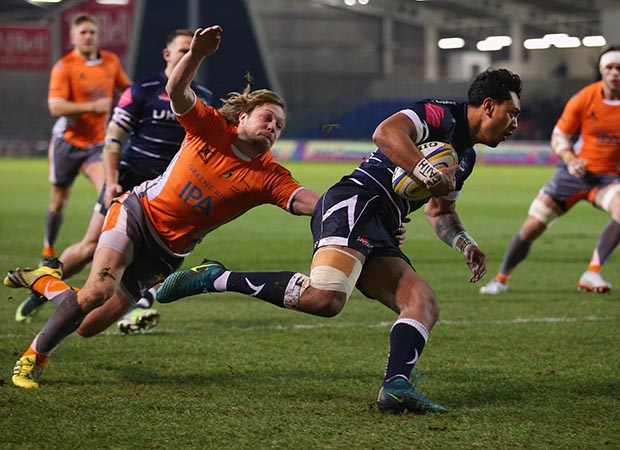 I love this time of the season, with all the phoney wars over and teams now settled on just one thing: Winning. Without the distractions of the international game or Europe, clubs focus fully on the final few games of the Premiership in the hope of achieving a place in Europe next year or winning a play-off spot.
I love this time of the season, with all the phoney wars over and teams now settled on just one thing: Winning. Without the distractions of the international game or Europe, clubs focus fully on the final few games of the Premiership in the hope of achieving a place in Europe next year or winning a play-off spot.
There is a kind of warm familiarity with all the usual suspects battling at each end of the table for the same prizes they have fought for over the previous years and the virtual certainty that if it doesn’t happen for them this year, they will probably be in the same position next year.
Usually, there would be a fight to avoid relegation but that battle has already been won by Newcastle and Worcester, with Bristol destined for the drop.
The truth is that the team to beat this year, as in the last couple of seasons, are Saracens who are looking good to do the double again this year and achieve a third Premiership title on the bounce.
The little matter of facing Clermont on May 13 in bonny Scotland has been made easier by a number of injuries suffered by key players in the French team – and the fact that the French hate playing away from home at any level of the game.
The Premiership final might be a bit trickier with Wasps currently flying high at the top of the league – despite Friday’s defeat by Quins – and Exeter still smouldering from last season’s lost opportunity against the same team. Leicester wil just be hoping they can have a decent end to the season.
The big worry for Sarries coach Mark McCall must be that the success he has created with a great squad of players will be undermined by the success of those players in representative selections.
In other words, will his Lions and various international summer tour selections be focused on what the club needs, or will their minds be elsewhere?
Sarries, probably more than any other club, make a great effort at building a team ethos with trips abroad for the squad and ‘bonding’ sessions.
However, for the players selected for the once-in-four-years Lions tour and those chosen as replacements for the first time in the England summer tour squad to Argentina, there must be a temptation to hold back to ensure you are not injured and miss the chance of a lifetime.
Having said all that, McCall with the backing of owner Nigel Wray, has built a phenomenal squad who play good rugby, with enough quality players who can step in and maintain the team’s dominance over all their rivals.
The worrying revelation by Simon Cohen in last week’s paper predicting a meltdown in Premiership finances as a result of over paying players, does seem a little exaggerated.
Estimates put the real wage cap, officially £6.5m plus two marquee players, at around £9m per club (£108m for the league). Yet the total amount officially paid was £117.8m, nearly £1m per club over the already inflated figure.
That is around 62 per cent of turnover but what has to be remembered is players make the game and are the most expensive factor unless you hire a stadium.
Unlike football where international players earn a small match fee, donated to charity, and receive the vast majority of their money playing for their clubs, rugby in England is the reverse.
The hike in wages bills at club level is not helped by the RFU continually increasing match fees for the internationals with players earning more than £250,000 if they are in all matchday squads for the season.
Add to that the various sponsorships on offer to international players and you can see why making international selection is such a big deal in rugby.
Premiership clubs are effectively forced to pay higher wages in order to maintain the primacy of contract and ownership of the players, which is vital in negotiating funding from the RFU.
If a number of players were to be centrally contracted to the RFU, the clubs would lose a vital bargaining chip and, in all probability, funding including player release payments.
The big worry is, with the global season and the probable increase in cross hemisphere competition, clubs will need bigger squads of quality players and that may well force the wage bill over the edge.
*The RFU’s attempts at defending the hypocrisy of selecting Denny Solomona while supporting a five-year residency qualifying period are laughable.
Blaming Eddie Jones by saying he has the right to select anyone who qualifies under current rules is outrageous. The French, who also back the increase in the qualifying period, have taken the step of unilaterally imposing a five-year residency period before allowing selection to the French team.
If the RFU want to be taken seriously at World Rugby’s May meeting where the change will be debated, they’d do well to take lessons from the French.























